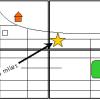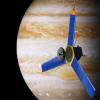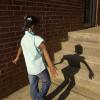Search Results
Showing results 1 to 8 of 8

Solar System in My Neighborhood
Source Institutions
In this activity, learners shrink the scale of the vast solar system to the size of their neighborhood.

The Pull of the Planets
Source Institutions
In this activity, learners model the gravitational fields of planets on a flexible surface.

Dunking the Planets
Source Institutions
In this demonstration, learners compare the relative sizes and masses of scale models of the planets as represented by fruits and other foods.

Size, Mass, Area, and Volume
Source Institutions
In this activity (page 23 of PDF), learners conduct an experiment to determine how the size and mass of a projectile affects the area and the volume of an impact crater.

The Thousand-Yard Model
Source Institutions
This is a classic exercise for visualizing the scale of the Solar System.

Why do Raindrops Sometimes Land Gently and Sometimes Land with a Splat?
Source Institutions
In this activity, learners examine raindrop bottles (prepared ahead of time) to observe in slow motion the behavior of falling droplets and explore concepts such as drag and terminal velocity.

Exploring the Universe: Orbiting Objects
Source Institutions
“Exploring the Universe: Orbiting Objects” is a hands-on activity that invites visitors to experiment with different sized and weighted balls on a stretchy fabric gravity well.

Exploring Shadows
Source Institutions
This activity guide features three related explorations to help learners ages 3-6 investigate shadows via the following science concepts: A shadow is made when an object blocks the light; you can chan
